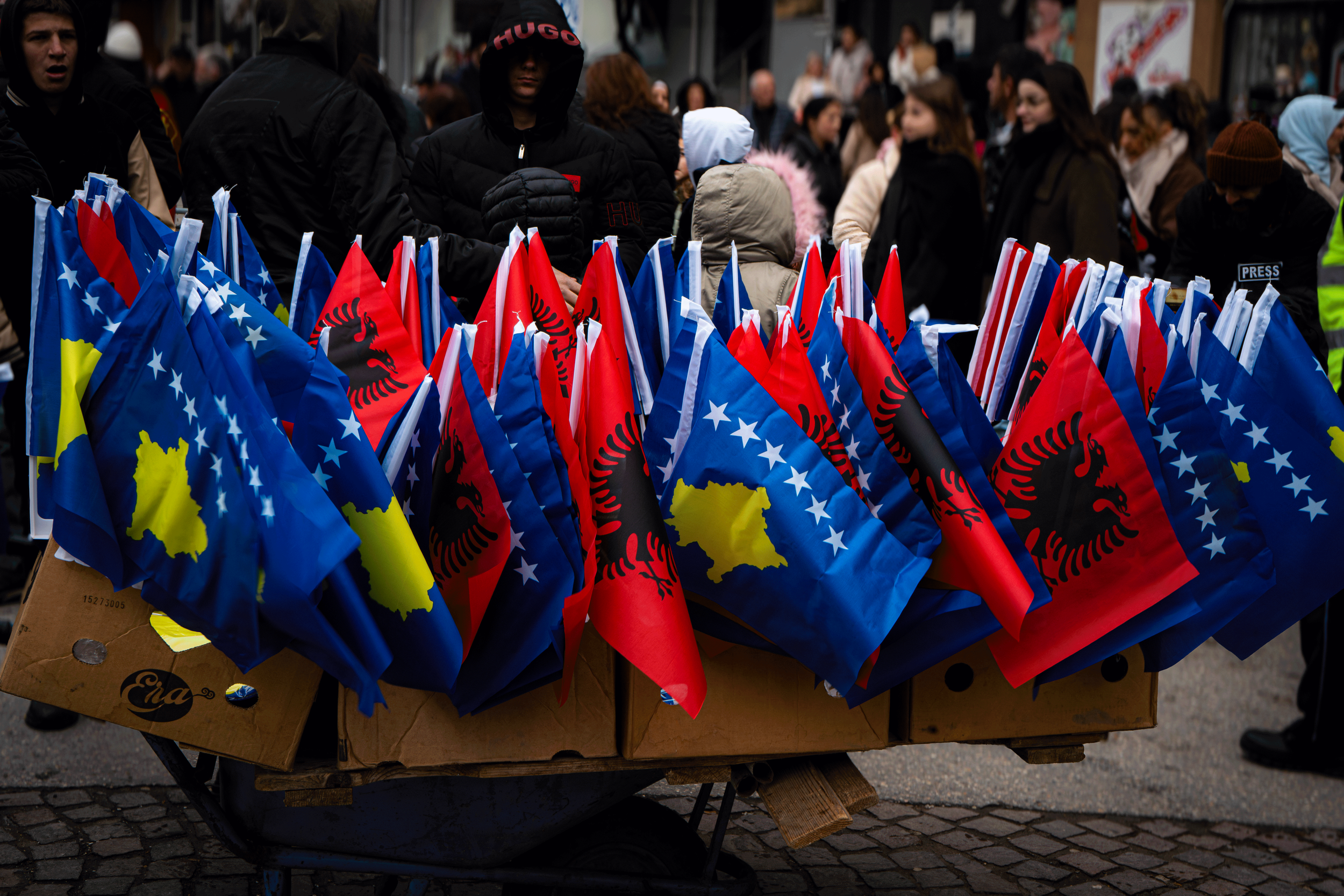Between Two Flags
Our national identity is a complex and oftentimes sensitive issue. For some, it is tied to where most of their trauma lies, the pain they have experienced in the past. What happens when this past isn’t something we have experienced firsthand? Is it still something you carry with you through life?
“I would say that I did. I did carry a lot of that and I still do,” shares one of my interview participants, born in 2001 in the city of Milosheva, Kosovo, a smaller city just outside the capital Prishtina.
“I personally am proud of my country and the fact it has come to this point even after going through a devastating war, but I am trying as well not to have it as much a part of my identity in the sense that, yes, my country went through war. But what you do after the war is you move on and you advance and you do something different. You choose not to go back to war, and I think that is something that is kind of making the difference for all of our generations. Because my parents, I think they would still be like, ‘Okay, maybe war is the only answer becuase that is the only way we re-get back our country’ and for us it is like ‘No’.”
In Kosovo, national identity is filled with immense pride, but it carries a complicated relationship with the trauma of the past. The majority ethnicity of Kosovo is Albanian, an identity that was central to why people fought for their lives. Yet it is not their national identity. “We have died and fought more for the Albanian flag than Albania,” one older participant who personally lived through the war, explained to me.
Young Kosovo-Albanian adults now find themselves at a crossroads between their ethnic identity and their national identity.
“For me, my biggest thing would be with Serbian friends. I meet a lot of Serbian people, and the problem is I hate them before I even meet them, because that’s how I grew up. I hate them before I even meet them, sometimes I don’t even meet them, because that’s how I grew up. I hate them before I even meet them, sometimes I don’t give them a chance, and they could be the best person ever. But because I was taught that, because of the war, Serbians are bad. And because of that, I don’t give a chance to any of that.”
We all have internal biases. The places we live, the experiences we endure, and the people who surround us shape our perspective on the world. Sometimes these biases can be a positive, shaping us into resilient, empathetic people. Sometimes they can be harmful to ourselves and others. However, when trauma is part of the mix, the process of confronting those biases becomes far more delicate. She continues with her thought:
“But then once you go deeper, you are like, ‘Wait a minute, they also went through war.’ You know, that’s something that really shifted a lot of my mindset, is that they also went through war, and the young people over there are going through the same hatred that they did not need to have. They hate us, we hate them because our parents and people before us told us, ‘Hey, there was a war and these countries are enemies and no one should interact.’”
The past is heavy to carry. It demands respect and attention. But if we are trying to build something from the ground up, how do we both honor that past and still focus on the future?
“I think that the government now knows that Kosovars and Albanians love being patriotic, and they think that being patriotic means hating on Serbia and wanting war against them and wanting their death. But I think that being patriotic is wanting your country to move forward, no matter what.”
The struggle between tradition and change is ongoing.
With Kosovo’s traumatic past comes a national identity that is layered and complex. For some, being called a Kosovar is a badge of honor, a symbol of sacrifice and perseverance. For others, it serves as a reminder of their separation from their Albanian roots. In many ways, national identity here embodies both our private selves and our public belonging. It is simultaneously a personal choice and a collective agreement. And in Kosovo, where the future remains uncertain amid ongoing debates of political recognition, identity is not just an abstract question; it is a lived tension between what is remembered, what is inherited, and what is yet to be built.

